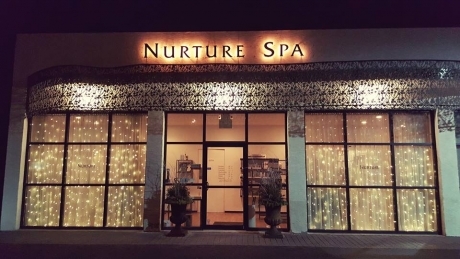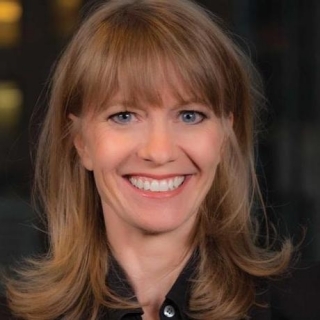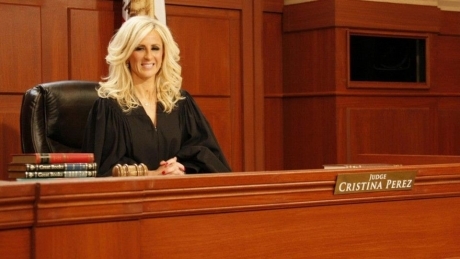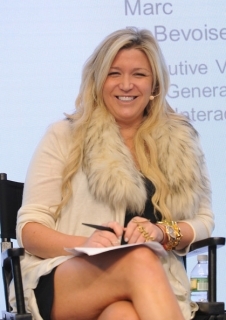Randi Zuckerberg's Blog, page 12
July 7, 2017
Radio Recap: Sara Blakely of SPANX
 You’ve probably heard of Spanx. Maybe you even own a pair, or two—or six. But did you know that Spanx were born out of a need? Required to wear pantyhose at her then-sales job in humid, muggy Florida, Spanx founder Sara Blakely didn’t mind how the hose made her body appear more firm and eliminated panty lines, but she hated how hosiery looked in open toed shoes. What Sara needed was an alternative to pantyhose—a problem she fixed with a pair a scissors. Little did she know that a how-to-write-a-patent book and the $5000 she saved selling fax machines door-to-door (it was the ‘90s after all) she was building the foundation of her empire.
You’ve probably heard of Spanx. Maybe you even own a pair, or two—or six. But did you know that Spanx were born out of a need? Required to wear pantyhose at her then-sales job in humid, muggy Florida, Spanx founder Sara Blakely didn’t mind how the hose made her body appear more firm and eliminated panty lines, but she hated how hosiery looked in open toed shoes. What Sara needed was an alternative to pantyhose—a problem she fixed with a pair a scissors. Little did she know that a how-to-write-a-patent book and the $5000 she saved selling fax machines door-to-door (it was the ‘90s after all) she was building the foundation of her empire.
Sara cold-called buyers and pleaded with male hosiery mill owners to make her a prototype, but they did not see the value of her idea. Luckily one manufacturer’s three daughters encouraged him to take Sara’s request and Spanx was officially born. Add in a sprinkle of Neiman Marcus, a giant splash of Oprah, and Spanx soon became the household name it is today.
In 2012 Forbes announced Sara Blakely as the youngest female self-made billionaire, and since then she’s only been on this rise. Sara’s a dedicated philanthropist with her Sara Blakely Foundation which helps women through education and entrepreneurial training. She is also the first female billionaire who, alongside Bill Gates and Warren Buffet, signed the ‘Giving Pledge’ which pledges to donate half of her wealth to charity.
Sara’s a mother of 4, wife to entrepreneur Jesse Itzler, and she sat down on ‘Dot Complicated with Randi Zuckerberg’ to discuss how she does it all.
“My dad is this strategic, persuasive attorney, and my mom is this very soft spoken, compassionate artist.”
“One of my favorite things to do was to go and watch my father’s closing arguments in court.” -Sara Blakely, early on, wanted to be a lawyer
Sara used to convince her neighbors to decorate for Halloween and then charge the all the other kids to tour through – a young entrepreneur!
Sara, the youngest female billionaire, had a roundabout journey to success – starting w/ failing the LSAT and being too short to play Goofy!
“I sold fax machines door-to-door for seven years in Florida. I learned how important it is for you to get your message out there quickly.”
“I heard the word NO for two years when I was trying to get SPANX made, but I had experience with that.”
“The true Aha! moment that led me to SPANX was my own butt!”
“I wrote: I want to invent a product that I can sell to millions of people that will make them feel good.”
“This might be why our undergarments are so uncomfortable: the people making them aren’t wearing them all day!”
“Use words like ‘I know’ and ‘I will,’ instead of ‘I think’ and ‘I like’.”
“I get flashed everywhere I go! The most conservative women will whip out their bra to show me what they like and dislike.”
“Ideas are the most vulnerable the moment we have them.” -Sara Blakely didn’t tell her friends and family about her SPANX idea for a year
“I just approached it like I was talking to my friends over a drink.” -Sara Blakely on designing the first SPANX packaging
“In her first SPANX pitch, Sara brought the buyer into the bathroom to show her before and after on her own body!
“I learned very quickly that my biggest obstacle was where I was located in the store.”
“I ended up creating outposts, and I would stand at a table elsewhere in the store and sell SPANX.”
“I’d buy card holders from Target, throw some SPANX in them, and put them at every register. Everyone thought someone else approved it.”
I asked friends and family to buy SPANX and sent them a check for reimbursement, so I made sure I showed good numbers.”
“I put it in a gift basket with a heartfelt note and sent it to her.” -Sara Blakely on gaining @Oprah‘s early support of SPANX
“Being a fish out of water has its advantages!” -Sara Blakely on founding SPANX in Atlanta
“What you don’t know can be your biggest asset. It’s going to ensure you do things differently from everyone else.”
“I own 100% of SPANX, it’s 16-years-old, and we’ve never advertised.”
“Courage is the strength to do things in spite of fear, not without fear.”
“Growing up, at the dinner table, my dad would encourage us to all share what we’d failed at. The only failure is not trying.”
“What you risk is in direct proportion to the magnificence of the journey!”
If you hashtag #siriusxm on one of her photos, you just may win a pair of SPANX leggings!
And, of course, we’ve gotta send a big #Welcome2Instagram to Sara! Follow her on IG at @sarablakely!
Join Dot Complicated with Randi Zuckerberg every Wednesday only on SiriusXM Business Channel 111 at 12pm ET/9am PT!!
June 21, 2017
Radio Recap: Littlstar + Thomas Frey

If you’ve ever wanted to join the ladies behind the prison bars in Orange is the New Black or move from sitting in the nosebleed seats to being on the court for the next NBA Finals, Littlstar can make your dreams come true. Littlstar is a content distribution network that shares immersive VR and 360-degree videos. Working with major entertainment companies like Discovery, CNN, National Geographic, and Hearst, Littlstar’s goal is to democratize VR cinema. The VR apps that use Littlstar’s platform have been downloaded 65 million times, and on the Littlstar app alone, there are millions of viewers watching more than 600 hours of content with an average session time lasting longer than 20 minutes. So to those who think it’s best to cater to only short attention spans— listen up. Today on ‘Dot Complicated with Randi Zuckerberg’ to discuss the growth of VR is Tony Mugavero, CEO and Founder of Littlstar.
“I built a co-working space. You know pretty quickly where all the problems are.”
“I was very young when my entrepreneurial journey started. My mother said to buy video games I had to figure it out. She wasn’t going to do it for me.”
“I always wanted to merge tech and media. I cut my teeth in media tech. I wrote the code for video transcoding and livestreaming.”
“I got an Oculus Rift Kickstarter and started playing around with it. We knew immediately something big was going to happen in VR.”
“We knew we wanted to dedicate our lives to an immersive company.”
“Today we’re across all the VR headsets, mobile devices and smart TVs.”
“VR is a small group of people willing it into existence.”
“We work with all the big studios and broadcasters. They bring completed content to us.”
“Star Wars did a big spot with Nissan. You can watch it in a headset or on mobile. We know everyone doesn’t have a headset yet.”
“You have to learn how to sell yourself as an entrepreneur. If you come from a tech background you aren’t a great salesperson.”
“The personal highest point in Littlstar has been when you hear people talking about us. We see random groups on Twitter in Japan talking about us.”
“The Playstation VR group on Reddit is amazing. I try to engage with them as much as possible.”
“My wife is my rock and sounding board. There are real struggles building a company.”
“We had a moment thinking we were going to run out of money after raising a small amount of funds from our family.”
“Running your own company can feel like someone else has control of your parachute and they’ve opened it as you fall to the ground.”
“You have to be thoughtful about the content. You’re taking over you’re entire visual field. Tricking your brain into thinking it’s somewhere else.”
Thomas Frey is Google’s top rated American Futurist and also founder of the DaVinci Institute, a networking firm and think tank that inspires inventions and innovations in Colorado.
“I focus on technology driven change.”
“One of my claims to fame at IBM was winning more awards than any other engineers there.”
“The true value in a prediction will force you to think about that possibility.”
“It’s a fascinating profession. I work with companies around the world.”
“Colorado has quite a vibrant tech scene that’s growing rapidly.”
“The DaVinci Institute has 32 startups in our co-working space. We’re trying to understand the nature of collaboration and how things are shifting.”
“We have the DaVinci Coders for the dire need of talent in that area.”
“I wrote a column on the coming meat wars. The first lab grown hamburger cost $350,000. It was taste tested on BBC TV by two food critics.”
“It’s only going to be lower, soon lab grown meet will be under $1 a pound.”
“People are vegetarian for a number of reasons. Lab grown meat is going to be a better quality product and takes less a toll on the environment.”
“Would you buy a purse if it was made from George Clooney cells?”
“We could create mother’s milk so we can stop using so much formula.”
“Everyone has a nagging anxiety about if they are going to have a job 5 years from now.”
“Machine intelligence is a hot topic. There are a lot of built in limitations. There’s undue fear.”
Join ‘Dot Complicated with Randi Zuckerberg’ every Wednesday at 12pm ET/9am PT only on SiriusXM Business Channel 111
June 14, 2017
Radio Recap: MasterClass + Mogul
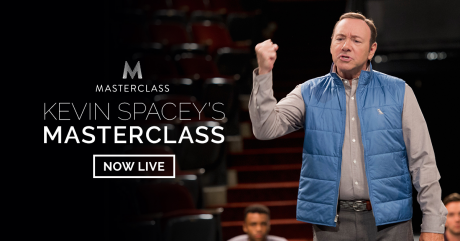
A few weeks ago on Like or Dislike we asked guests if they’d pay $90 for acting classes from Emmy winner and TONYs host Kevin Spacey, or cooking classes from Hell’s Kitchen’s Gordon Ramsey, or writing classes from TV’s own Shonda Rhimes and the answer was a resounding YES! Everyone wants a part of the types of classes offered by MasterClass—whose mission is to democratize genius. And those especially chomping at the MasterClass bit are investors who have brought MasterClass funding up to over $57 million. With me today to discuss the success of MasterClass is CEO and co-founder, David Rogier.
“I missed building stuff and I had someone who wanted to fund me.”
“I wanted to hear how people learn. The nugget we found was there’s knowledge found in the very best minds.”
“Imagine going back in time and taking a class with the Wright Brothers.”
“At first it was so hard getting these folks to teach. After you get to them, they were excited to teach.”
“I got a call on my cell phone and it was James Patterson. He wanted to teach a class. He was our second teacher. Now instructors come to us.”
“We do a lot of polling and qualitative tests to see who people want to teach.”
“I was so excited for Aaron Sorkin and it launched and the appeal was so huge. It appealed to business execs and actors, not just writers.”
“It’s not just fans who take these classes. It’s people who want to improve their lives.”
“We had to spend a lot of time thinking how we were going to prove that this business was going to work.”
“We filmed my mom and dad as our test shoot. My mom is a fiber artist and so she taught that and my dad is a divorce lawyer and gave tips.”
“Usher did a class on performance. I stutter and Usher said to admit your weakness. I admit it first and then I stutter less.”
“I would love a class with Elon Musk.”
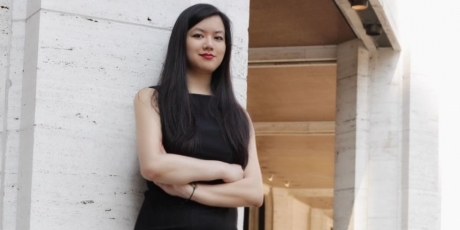 Tiffany Pham is the founder & CEO of Mogul, a global media empire for women which encourages its audience to share ideas, solicit advice, and interact with other community members on the platform. Mogul was named a “Top NYC Startup to Watch” in 2015 by Entrepreneur, “Best Website for Finding Top Talent” by Inc. Magazine, and “Top Site for Marketing Your Company Online” by Forbes. And Tiffany was named one of Forbes “30 Under 30” in Media, and as Business Insider’s “30 Most Important Women Under 30” in Technology.
Tiffany Pham is the founder & CEO of Mogul, a global media empire for women which encourages its audience to share ideas, solicit advice, and interact with other community members on the platform. Mogul was named a “Top NYC Startup to Watch” in 2015 by Entrepreneur, “Best Website for Finding Top Talent” by Inc. Magazine, and “Top Site for Marketing Your Company Online” by Forbes. And Tiffany was named one of Forbes “30 Under 30” in Media, and as Business Insider’s “30 Most Important Women Under 30” in Technology.
“Asking advice is such an important part of growing up. Humans hopefully will be the ones still offering that advice.”
“I’ve been so inspired by my family for many generations. They’ve been in the media for a long time. Especially my grandmother.”
“I grew up in Paris, France and then moved to Plano, Texas. It helped me build resilience early on.”
“Radio, TV, film helped me learn to speak English.”
“I was working so hard. I had gone to Yale and Harvard Business School. I worked with various media companies. And at night I had side hustles.”
“I was producing incredible films. I was behind the first film to ever feature a man with Downs Syndrome in a lead role.”
“When I was 14 I had the idea to start Mogul. I promised my grandmother I’d follow in her footsteps.”
“I started receiving letter from young girls around the world asking advice.”
“My personality is that I love to help so much I go overboard.”
“I started to realize that instead of doing one-on-one behind the scenes what if we all shared our advice with everyone on a certain platform.”
“I approach every conversation to learn from others.”
“People who are veterans of the industry have been championing Mogul since Day One.”
“Mogul is a platform when you log on you can see what’s trending in women’s minds around the world.”
“I’m amazed by our incredible users.”
“We have so many amazing supporters from around the world, from Silicon Valley VCs to celebrities.”
“I loved when Katie Couric was on.”
“I thought if I could teach myself to code I could get Mogul completed sooner than later. After a couple of weeks I had built the first iteration of Mogul.”
“Some of the best entrepreneurs start after age 40.”
“I think it was essential to know the technical aspects of Mogul.”
“By teaching myself to code I gave myself the confidence that I could be build Mogul.”
“I had installed all these different widgets to increase shareability.”
“If ever you needed something, in every conversation bring it up because you never know who will be able to provide it.”
“Writing is my most important skill.”
“I was in a LTR who made me choose between launching Mogul or marrying him and moving in. I chose Mogul and put up a post about it that got read 13M times.”
“I was a one-person team at first. I was working 24/7.”
“Mogul At Work provides jobs and internships to our user base.”
“Mogul Learning develops courses for girls worldwide.”
“Mogul Studios is where we partner with production companies to create entertainment and mobile content.”
Join Dot Complicated with Randi Zuckerberg every Wednesday at 12pm ET/9am PT only on SiriusXM Business Radio Channel 111!
June 7, 2017
Radio Recap: Adam Alter + TED’s Chris Anderson

Today on Dot Complicated with Randi Zuckerberg two amazing guests who are both not only New York Times’ best-selling authors, but who are at the top of their game in their fields as well sat down to talk shop.
Chris Anderson is the current head of TED. Trained as a journalist after graduating from Oxford University, Anderson launched more than 100 successful magazines and websites before turning his attention to TED, which his nonprofit foundation acquired in 2001. His TED mantra — “ideas worth spreading” — continues to blossom on an international scale, with more than one billion TED Talks viewed annually. And Chris’ New York Times bestseller TED Talks: The Official TED Guide to Public Speaking just came out in paperback.
Also with me is Adam Alter is the Associate Professor of Marketing and Psychology at New York University’s Stern School of Business, and the author of Drunk Tank Pink, a New York Times bestseller about the forces that shape how we think, feel, and behave. He recently released Irresistible: The Rise of Addictive Technology and the Business of Keeping Us Hooked about the rise of behavioral addiction, and why so many of today’s products are irresistible.
“People study what they’re worst at and I’m paralyzed at decision making so I decided to study that.”
“Lawyers with simple, easy to pronounce names become partners much faster
“When people struggle with something they pay more attention to it.”
“This pink shade of drunk tank cells supposedly calmed people down.”
“Fast food companies use reds and yellows because they are warmer colors which signify food.”
“People donate more toward hurricanes that share the same letter as their name. We’re leaving donation money on the table by not strategically naming hurricanes.”
“Women in the legal profession become judges more quickly if they have a male named.”
“Stocks tend to do well in the first day of trading but how easy to pronounce their name can help their success.”
“Go for the simpler name, you want people to be able to pronounce it and share it.”
“I got on a flight once with plans to work and ended up playing a game for 6 hours straight.”
“Very little tech has stopping cues. Streaming services play all the shows, there’s no end to reading the news online.”
“There are people who feel happy with their engagement with screens. We could stand to moderate a little bit.”
“The app Moment tells you how much time you spend on your phone. High school students had 6-8 hours. That’s a full time job.”
“Humans want certain rewards. We’re better at sticking at things when we don’t know what the outcome will. Unpredictable is key.”
“Tech is going to save us from tech.”
“1991, Sydney, the Game Boy. It was a revolution.”
“I taught the intro to marketing class at NYU to undergrads.”
“I’ve learned we are the products of our environments. You have some control if you understand what your environment is doing to you.”
—
“I was kind of a misfit growing up. I was the plump, shy one in the back of the class.”
“I was a bit of a dreamer, always interested in science.”
“I never really felt part of one country which is probably why I came to America 25 years ago.”
“TED is a global organization. Ideas don’t know borders.”
“I bought a home computer in 1980 and was blown away by it. I never worked on a magazine but I understood what the computer addiction was like.”
“It was so much more expensive to be in publishing back then as opposed to launch a website now.”
“In 1998 I went to TED, people there were dreamers. I got really excited about bold, crazy ideas about the future inspired by technology.”
“I bought TED with my Sapling Foundation so it became a non-profit.”
“Back then television wasn’t interested TED Talks. Talking heads, boring. Go away.”
“When some of the talks went viral it was so curious to see how many people out there were so interested in these topics.”
“When the talks are good, they are tapping into something primal.”
“We had a talk about human behavior, why people do what they do. From hormonal causes, to environmental causes. It was done remotely.”
“I’m meant to be the guy who gets other people to do talks.”
“Public speaking really matters in the future. Online video can carry a talk the same way writing a book can influence people.”
“I’ve had this ringside seat of seeing speakers do their thing so I had a chance to crowdsource information for the world’s best speakers.”
“Tear up most of what you want to say. We’re in attention war. Say one thing, say it well and in depth.”
“You can say something people can remember by starting with a question.”
“Use language that you think the audience has.”
“People see what works and are massively motivated to do a good talk because it might be seen by millions.”
“There’s no formula. Understand what the tools of public speaking are.”
“Monica Lewinsky came on stage a few years ago. She overcame her fear and hit it out of the park.”
“We sprung a talk from the Pope. Even though it was recorded it was electrifying.”
“We invite people who think they have a talk. 25,000 applications come in and only 100 get chosen.”
“We have events held in opera houses to prisons and slums. If you ever want to into a intellectual mine field check out TEDx talks.”
“Give away more than you think you should.”
“I got a letter from a prisoner who went to a TED talk in jail. He said his experience wasn’t the best day in jail, it was the best day of his life.”
“Aimee Mullins made me cry. She spoke of her empowerment with artificial legs and it was incredibly moving.”
“My first time speaking in public was for show in tell talking about my beetle collection.”
“We teach kids to prepare their own TED talk.”
—
Join Dot Complicated with Randi Zuckerberg every Wednesday at 12pm ET/9am PT only on SiriusXM Business Channel 111
May 31, 2017
Radio Recap: Black Women Talk Tech + Faith Popcorn
 On this show we often discuss how difficult it can be to break into the technology industry for anyone who isn’t a white male. The same inequalities can also be applied to the tech employee’s paycheck. According to Recode.net and Hired—a job site that helps place people in tech jobs—nearly two in three women receive lower salary offers than men for the same job at the same company. While the numbers are up from last year when 69% of women received lower offers, for black women in tech, the disparity still looms large. Currently black women in technology make $.79 to every white man’s dollar or $79,000 for every $100,000 a white man makes. To stop the race and gender disparity in the tech sector and focus on encouraging and supporting the next black female-led billion-dollar company is Lauren Washington, the founder of Black Women Talk Tech, a new event series that supports diversity and inclusion in the startup ecosystem. Lauren is also the winner of Buffalo, New York’s million-dollar 43North competition for her social media manager app, KeepUp.
On this show we often discuss how difficult it can be to break into the technology industry for anyone who isn’t a white male. The same inequalities can also be applied to the tech employee’s paycheck. According to Recode.net and Hired—a job site that helps place people in tech jobs—nearly two in three women receive lower salary offers than men for the same job at the same company. While the numbers are up from last year when 69% of women received lower offers, for black women in tech, the disparity still looms large. Currently black women in technology make $.79 to every white man’s dollar or $79,000 for every $100,000 a white man makes. To stop the race and gender disparity in the tech sector and focus on encouraging and supporting the next black female-led billion-dollar company is Lauren Washington, the founder of Black Women Talk Tech, a new event series that supports diversity and inclusion in the startup ecosystem. Lauren is also the winner of Buffalo, New York’s million-dollar 43North competition for her social media manager app, KeepUp.
“We won $450,000 to build out Buffalo to create tech talent and new industry there.”
“I love the way Basecamp runs their company. They give their employees a lot of power and trust.”
“I’ve always wanted to be an entrepreneur. I sourced tomatoes from my neighbors garden and sold them to other neighbors.”
“Everything you do that’s bigger than yourself is going to create fear.”
“At my last job we took social media data to create invites for businesses. The tools were so expensive.”
“I love solving problems through new ways. You have to be open to possibilities and solutions will come through a changing world.”
“I started Black Women Talk Tech with two other amazing women who I kept seeing on the tech trail. It started as a retreat.”
“We partnered with Google and put the spotlight on black women in tech.”
“Our mission is to help support the next billion dollar tech company run by a black woman.”
“Women and black women face similar barriers. It’s an unconscious image people see in tech.”
“When I go into pitches I can’t point to someone who’s been where I’ve been.”
“I hope we move away from quotas when it comes to diversity.”
“Diversity creates better ideas.”
“You have to create a company where they can’t say no.”
“There are only 14 black women who have raised over a million dollars. It’s chump change for the VC market.”
“$36,000 is the average a black woman can raise from VC. So they’re cobbling money anyway they can.”
“43North was put on by Gov. Cuomo. It’s in its 4th year. We were one of the winners.”
“We could barely name a black woman who’s a tech founder.”
“We’re turning Black Women Talk Tech into its own company.”
Futurist, consultant and trend visionary Faith Popcorn is the founder and CEO of her own marketing firm, BrainReserve. She’s been called ‘The Trend Oracle’ by the New York Times, Fortune Magazine has called her ‘The Nostradamus of Marketing’. She has a 95% accuracy rate and has identified the trend to move toward four-wheel drive vehicles as well as the demise of film. In 1981, she advised Coke to go into bottled water, warned Kodak to go digital, and has predicted the trend of micro-clanning—or creating more intimate groups of friends based on similar beliefs—from which she coined the term digital “cocooning,” where people only follow accounts with the same core beliefs as their own.
“When we were looking forward to VR we wanted to talk to the deceased.”
“You had to prepare companies for the right strategies.”
“The future is really right in front of you. Most people choose not to see it.”
“Everything is about disruption because if you’re doing it, it’s hard to see it will be over.”
“Einstein said the same people who created the problem can’t solve it.”
“We predicted supermarkets would be over and our male clients were like ‘how will women talk to each other?’ Do they know any women.”
“We all know that robots will mate with us and we’ll be half robots.”
“If you have an artificial knee you’re half robot.”
“I think it’s an intentional blocking of women, especially black women in tech.”
“Men are so uncomfortable with women in the workplace. It’s hard to get ahead as a woman in Fortune 200.”
“I predict a female revolution. People are getting angry.”
“I went to the HS of the Performing Arts in NYC. I had to go to college and started my company Faith Popcorn Brain Reserve.”
“So far, we’ve been right.”
“I was fired so many times from various advertising agencies. I started my own company on my credit card like so many women do.”
“I built this Brain Reserve solving problems together.”
“I was interviewed by Fortune early on. I had no clients so I told them what I thought would happen. Everything was spot on.”
“You’re moving mega-businesses ahead on what you say is going to happen.”
“Where’s a credit card or bank for females?”
“You won’t have to learn French, you’ll have a chip.”
“AI is not artificial, it’s real intelligence.”
“In 1981 we said people would be cocooning. Now it’s as an armor.”
“People are going to connect digitally by traveling and holograms. Who wants to go anywhere anymore?”
“Health is going to be a big biography.”
“I am a great proponent of drinking. It loosens your mind. Let go.”
“Everybody has the genetic ability to look forward.”
“Nobody can fire you if you work for yourself.”
May 24, 2017
Radio Recap: Twist Light + FAB Mom
 As the number of smart home products increase, solutions to everyday problems are decreased. Many home devices are too pricey, too complicated to install, or work only a fraction of the time. Enter Twist Home, whose best-selling smart home product is one that works without any smart hub device—all you need is a standard light socket. The Twist Light is a biologically-correct LED light bulb that not only mimics the sun’s natural pattern—giving off a cool blue color in the morning and warm yellow hue in the evening—but it also has a wireless speaker made by Sonos and Bose manufacturer Tymphany. The bulb can connect to Airplay from your iPhone or laptop and sync across all rooms in the house. When you set it up, there’s no pairing — your iPhone discovers the device and allows it to connect automatically to Wi-Fi. The Twist Light is so cool it recently partnered with Arianna Huffington’s Thrive Global, whose mission is to end the epidemic of stress and burnout by offering companies and individuals sustainable, science-based solutions to enhance wellbeing and performance. On today’s ‘Dot Complicated with Randi Zuckerberg’ was Twist is Twist Home COO Christina DiLaura.
As the number of smart home products increase, solutions to everyday problems are decreased. Many home devices are too pricey, too complicated to install, or work only a fraction of the time. Enter Twist Home, whose best-selling smart home product is one that works without any smart hub device—all you need is a standard light socket. The Twist Light is a biologically-correct LED light bulb that not only mimics the sun’s natural pattern—giving off a cool blue color in the morning and warm yellow hue in the evening—but it also has a wireless speaker made by Sonos and Bose manufacturer Tymphany. The bulb can connect to Airplay from your iPhone or laptop and sync across all rooms in the house. When you set it up, there’s no pairing — your iPhone discovers the device and allows it to connect automatically to Wi-Fi. The Twist Light is so cool it recently partnered with Arianna Huffington’s Thrive Global, whose mission is to end the epidemic of stress and burnout by offering companies and individuals sustainable, science-based solutions to enhance wellbeing and performance. On today’s ‘Dot Complicated with Randi Zuckerberg’ was Twist is Twist Home COO Christina DiLaura.
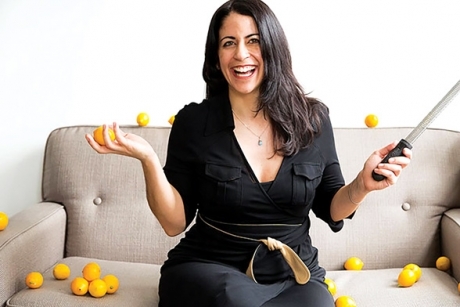
“We all aspire to be like our heroes.”
“Our core value is trying to introduce simplicity into the smart home.”
“67% of consumers don’t buy smart home products because they’re concerned about installation.”
“63% of smart home appliance buyers have had to have someone else install the product.”
“Our first product is the Twist speaker. It works over wifi so no connectivity issues.”
“It’s as simple as changing a light bulb. We can actually say that.”
“I moved to NYC out of college and went into investment banking. Doing other client’s work wasn’t fulfilling.”
“I moved into biz dev and it was my career epiphany.”
“I started writing a food blog to pass the time but I meant people who wanted to build Food52.”
“I wanted to a new challenge and after I met Shaun from Twist I had this light bulb moment. Light as a lifestyle as opposed to a commodity.”
“Shaun started Twist 3 years ago. We’re only 10 people now. Almost half of us are women.”
“We all bring different perspectives. It’s a diverse team.”
“The bathroom is one of the places most people are using the Twist because they don’t want wires near the water.”
“Our community is listening to 7 hours more music with the bulb than they were before.”
“I always like to be somewhere where I’m challenged.”
“No one has used the light socket for more than just light.”
“There are more than 45 light sockets in every home. More than outlets.”
“The first place I installed the Twist bulb was the kitchen.”
“I love to bake bread. It’s super relaxing.”
Use code DOT25 to get $25 off a Twist bulb today!
Jill Simonian, a.k.a. ‘The FAB Mom,’ is a seasoned TV Host & entertainment journalist turned parenting lifestyle expert. She’s a weekly contributor to CBS LOS ANGELES and has been seen on everything from the TODAY show to the Hallmark Channel. Jill’s girlfriend-to-girlfriend vibe and point of view about motherhood has led Jill to publish her first book, The FAB Mom’s Guide: How to Get Over the Bump & Bounce Back Fast After Baby. Please welcome to Dot Complicated Jill Simonian.
“I won an on-air contest to find the KTLA next weatherperson. It was a contest where viewers voted. I came in first runner up.”
“I never considered myself an entrepreneur until my first daughter was born. I shifted from entertainment reporting to motherhood blogging because of fear.”
“I took my fear and redirected it into something positive.”
“FAB stands for Focused After Baby.”
“The majority of the book is bouncing back your mind more than your body.”
“I shared all these weird and wacky things I did to feel accomplish things during the day. Like I stayed committed to making my bed every day. Even at 4pm.”
“In the first 30 days after baby, I committed to spending as much time in my underwear as much as possible to become comfortable about my body.”
“The more I saw myself in the mirror tending to baby the more body confident I felt.”
“You have to learn how to concentrate on one thing at a time.”
“Confidence is the key is to being able to handle so much.”
“Someone operating on 4-6 hours of sleep is the same as someone driving drunk.”
“Guilt is a wasted emotion.”
Join Dot Complicated with Randi Zuckerberg every Wednesday at 12pm ET / 9 am PT for the latest in tech trends and entrepreneurs! Only on Sirius XM Business Channel 111!
May 17, 2017
Radio Recap : Melody Wilding + Soundcast
 It’s said we make about 35,000 decisions on a typical day—what to wear, when to wake up, what to eat— but studies show all of these choices can lead to “decision fatigue,” which stems from the idea that each decision we make pulls from a single, limited pool of energy. But how big of a pool we start from, and how fast we drain it, is impacted by a number of factors. Since humans have a limited amount of brainpower for making smart choices, and that cognitive reserve is depleted throughout the day, we often waste mental energy on choosing almond milk over soy milk as opposed to making more important decisions like whose email to respond to first—the boss or your friend. In the age of long hours, overflowing inboxes, and packed calendars, it’s no wonder we’re depleting our mental reserves faster than we can replenish them, but today we have help! Melody Wilding is a human behavior expert who helps high-achievers mentally and emotionally thrive. A professor at Hunter College and psychology columnist at Forbes, Fast Company and Inc. Magazines, Melody is a licensed therapist and workplace psychology expert and the first guest on ‘Dot Complicated with Randi Zuckerberg’!
It’s said we make about 35,000 decisions on a typical day—what to wear, when to wake up, what to eat— but studies show all of these choices can lead to “decision fatigue,” which stems from the idea that each decision we make pulls from a single, limited pool of energy. But how big of a pool we start from, and how fast we drain it, is impacted by a number of factors. Since humans have a limited amount of brainpower for making smart choices, and that cognitive reserve is depleted throughout the day, we often waste mental energy on choosing almond milk over soy milk as opposed to making more important decisions like whose email to respond to first—the boss or your friend. In the age of long hours, overflowing inboxes, and packed calendars, it’s no wonder we’re depleting our mental reserves faster than we can replenish them, but today we have help! Melody Wilding is a human behavior expert who helps high-achievers mentally and emotionally thrive. A professor at Hunter College and psychology columnist at Forbes, Fast Company and Inc. Magazines, Melody is a licensed therapist and workplace psychology expert and the first guest on ‘Dot Complicated with Randi Zuckerberg’!

“If you think about everything you do during the day, what to wear and eat, they really add up, leaving you depleted at the end of the day.”
“Social media helps us celebrate what’s going on in our lives.”
“You would only go to your high school reunion every 10 years now you see it everyday.”
“We all live with the reality that Google image search can stay with us for a long time.”
“I was always striving to do more and talking to a lot of women who felt the same. “
“Constantly challenging yourself means there will be failure.”
“I doubt myself all the time and the reaction I got was ‘me too.’ I saw a need for imposter syndrome and fears.”
“Greeting the negative emotions and being able to mine them for any good. How can you reframe the negativity to move forward.”
“How to create personal boundaries / emotional boundaries is a big topic with my clients.”
“Energy management over time management. The best asset you have besides time is yourself.”
“A self-care practice I like to share is called HALT: Hungry, Angry, Loneliness, Tired. If you are hangry nothing good is happening.”
“You’re saving energy when you eat the same thing or wear the same thing every day.”
“Have a morning routine or evening transition ritual.”
“We all have a need for connection, that’s what loneliness is about. Real connection to other people.”
“We’re conditioned to pay attention to other people over ourselves.”
“Be very clear about what you can do. ‘I can’t come to your charity event but I’m happy to tweet about it.’ Offer a positive bid instead.”
“More times than not I was feeling guilty for not feeling positive.”
“When you’re a high achieving person you’re pushing your own limits, wondering if you can make it to the next level. It’s in our benefit to figure out what self doubt it trying to tell you.”
“People in careers they don’t love are unsure and live in self doubt.”
“Fear could be trying to get our attention.”
“I was with the first ever online therapy group, Pretty Padded Room.”
“I chug water and am off to the gym, first thing. It’s how I deal with stress.”
Charity Hardwick is the Vice President of Soundcast, a privately funded company that creates wireless audio technologies for consumer and commercial markets. Soundcast’s engineering team first refined wireless technology to avoid interference from other appliances like the microwave oven or the cordless phone and has now been named one of the top innovative companies in sound design and engineering. Charity is also one of few women in the audio industry.
“We’re all trying to reach out to other people. It’s human nature to want to impress our friends.”
“Less than 1% of the population has a Golden Ear.”
“Audio really exploded with hi-fi back in the 80s. There were wires everywhere.”
“The boombox was transitional. We found a way to make audio mobile.”
“About 10 years ago Soundcast came out with a speaker with a subwoofer built in that was waterproof.”
“In my Impala I have two 12-inch subwoofers.”
“When sound starts getting compressed through streaming services that don’t care about audio quality it can prevent ear fatigue.”
“Only 5% of people in audio are women.”
Listen to ‘Dot Complicated with Randi Zuckerberg’ every Wednesday at 12pm ET/9a PT only on SiriusXM Business Radio Channel 111!
May 10, 2017
Radio Recap: Pixies Did It + Nurture Spa

Let’s say your best friend has to choose a label that sounds most like you. Which one would they pick? A. Dreamer or B. Doer? It’s questions like these that the founders of Pixies Did It ask their clients to create a personal, tailored system of organization according to personality type. Here with me to discuss Pixies Did It are sisters and co-founders, Kelly and Katie McMenamin.
“It’s a rough world on Wall Street for a girl.”
“Our dad and mom called us pixies.”
“When we became organizers we had our clients take the Myers-Briggs test. Our brother was our first client.”
“Some people are filers some people are pilers.”
“People’s brains are wired differently so they organize differently.”
“People who are to-do listers really love it. Some people hate them.”
“Half the population are what we call Classics—everything in its place.”
“Half of organization is about retrieval. Can you find things?”
“When we started it was during the crash. We figured we could take the time to write a book.”
“If you’re a visual person, you need to formalize everything and get matching bins.”
“There’s a coat problem at the entrance of the door. Coat hooks are key.”
“Everyone needs a home office if you’re over the age of 10. Even if it’s a cupboard.”
“As close as you can make things to a one-step process—by adding hooks or a transparent inbox, then do it!”
“If you’re a floater at the office, you need to have a backpack so you have everything you need.”
“If you’re more a visual person, have see-through folders.”
“Huggable hangers were our first Pixies approved product.”
From the Director of Marketing at Estee Lauder to Hearst, Carolyn Holdsworth has parlayed her marketing experience to follow her dream of owning, designing and developing a high-end spa in the country. Award-winning luxury day spa Nurture Spa in New Hope, Pennsylvania, has been voted the Best Spa of Philly four times and is described as “unpretentiously decadent.” Here to discuss her luxury day spa in the country is Carolyn Holdsworth of Nurture Spa.
“We all know that we’re sleep deprived. I have people asking to pay to nap after a massage.”
“I found myself progressing up the career ladder and getting bored. The only constant was me. I knew I needed a change.”
“”I went to Rancho LaPuerta the oldest spa in N. America and realized I wanted to be a part in helping people feel better.”
“I had a friend who lived in New Hope, PA, about an hour outside of NYC. I let my heart lead me there.”
“Without my marketing experience I wouldn’t be where I am. It is different building a brand for someone else versus myself.”
“The recognition from the media is a highlight. Our my staff telling me how much they love working at Nurture Spa.”
“The recession was tough. I opened a second location during those rough two years.”
“You feel connection when you walk in, especially where there seems to be less and less connection.”
“We are really present and focus on making the connection.”
“My best friend’s husband started his company with a partner so I would ask him for advice. I opened Nurture by myself.”
“Step 1 was going to beauty school to learn the business from a technical standpoint. I didn’t want to be a marketing chick who opened up a spa.”
“I am now a licensed nail technician.”
“Management style is different. Being a manager in the service world is different than corporate. I had to change my language style.”
“I retained a business coach to hone my management style. Now the morale and business is at an all-time high.”
“I’m looking for products that do what they claim to do. The beauty industry is incredibly crowded. I have to sample on myself for 2 weeks.”
“I look for company support, many don’t support small businesses. Not just financial support but social media support.”
“I was the oldest girl in beauty school. I was vice president during the week and in beauty school on the weekend.”
“I love change and challenges.”
“I tell my team, the answer is usually a yes. I believe in old school customer service.”
“Be clear on how you are different and what you want to be in that space. Every industry is crowded. If you don’t know who you are you’ll get trampled.”
“We rely heavily on reviews. They’re here to stay. You love them, you live with them, you do your best so you get great reviews.”
“We’re moving into a new location 3 times our size.”
“New Hope is an adorable town and a historic town.”
Join ‘Dot Complicated with Randi Zuckerberg’ every Wednesday at 12pm ET/9am PT only on SiriusXM Business Channel 111!
May 3, 2017
Radio Recap: Radical Acceptance + Judge Cristina Perez
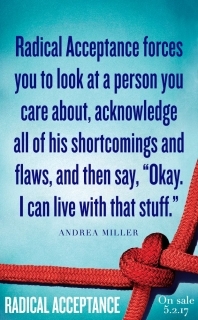 Andrea Miller comes from a background in finance and tech, having graduated from Tulane University with a BS in mechanical engineering and receiving her Master’s from Columbia Business School. From there Andrea worked at Goldman Sachs, ICF Consulting, and Enron’s international finance team before realizing her true life’s calling: LOVE. In 2002, Andrea became the founder and CEO of YourTango—an online magazine dedicated to helping women navigate the complex world of love and relationships. With an audience of nearly 14 million unique users each month, Andrea recently decided to branch out of the digital realm and publish her first book, Radical Acceptance: The Secret to Happy, Lasting Love.
Andrea Miller comes from a background in finance and tech, having graduated from Tulane University with a BS in mechanical engineering and receiving her Master’s from Columbia Business School. From there Andrea worked at Goldman Sachs, ICF Consulting, and Enron’s international finance team before realizing her true life’s calling: LOVE. In 2002, Andrea became the founder and CEO of YourTango—an online magazine dedicated to helping women navigate the complex world of love and relationships. With an audience of nearly 14 million unique users each month, Andrea recently decided to branch out of the digital realm and publish her first book, Radical Acceptance: The Secret to Happy, Lasting Love.
“I don’t like the shaming around how much sugar the Unicorn Frappuccino has in it. So does a Coke.”
“I’m all about replacing judgment with compassion and empathy.”
“What makes people beautiful their feelings about themselves.”
“I come from a family of entrepreneurs. They encouraged me along the way.”
“I had these incredible experiences at Goldman Sachs, but I wanted to find my passion.”
“Love is the most important thing in the world and the hardest to get right.”
“Being a media company and wanting to be the authority, there’s a braintrust of people in the love space that I wanted involved and part of the business model.”
“We have experts who pay us to have a platform in the digital realm. They’re all entrepreneurs. It’s a virtuous cycle.”
“We train experts to advise people in a conversational way—an emotional way.”
“I’m an eternal optimist.”
“We started from scratch in 2008 and went from traditional print to digital.”
“Radical Acceptance is meant to transform your life. I started working on this 10 years ago.”
“I developed radical acceptance for my marriage. I used to say, ‘I married the most wonderful, brilliant man—except when he’s not.’”
“I knew I needed to start loving his unlovable parts. I found in the process, it wasn’t just his, it was my unlovable parts.”
“My Achilles heel is also my greatest strength, and that’s my passion for work.”
“While the book is about love relationships, radical acceptance works everywhere—the workplace, with your kids.”
“My team is far flung across the US.”
“Writing Radical Acceptance has been brutal because I was worried people were going to judge me. Being open and putting myself out there has helped.”
“My stories are the thread that kept the book together, but there are a lot of other stories of people who practice radical acceptance.”
“Start to accept people for who they are, not who you want them to be.”
“I want to get people around the world to practice radical acceptance.”
Get Radical Acceptance HERE
———
Three-time Emmy winner, Judge Cristina Perez, is one of the most trusted TV personalities. Her perspective on common sense, common goals, and common ground makes her a great host and even better judge. Cristina hosted the syndicated American arbitration-based court show, Cristina’s Court, which debuted in 2006 and made her one of four Hispanic judges that presided over English-language American TV making Cristina the first Hispanic judge to cross over from Spanish-language to English-language television. She’s the author of 3 books, with her newest book, Red, White and Latina: Our American Identity, dropping on Cinco de Mayo— the day everyone is Latin! Please welcome to Dot Complicated, Judge Cristina Perez.
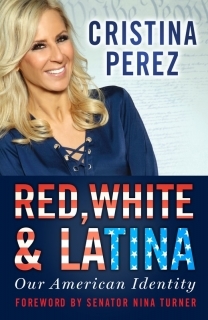
“People with a dream is what this country stands for.”
“My father came to this country and was forced to take all kinds of djobs but he knew he wanted to be a surgeon. This country gave him that.”
“This is the country that defines who we are. That’s our American identity.”
“I went to UCLA and wanted to be a doctor. I realized my passion was with people so I changed my major to law.”
“My father always said, “No matter what job you have, feel passionate about it everyday.”
“The law is about people, it’s a story. That’s why TV show court cases are popular because of the human story.”
“I did a screen test and the next thing you know I was doing a Spanish-speaking show in LA on Telemundo.”
“When you work in TV it becomes a passion. You become addicted to it.”
“The best part of being on TV is the platform to be able to defend the law and bring it in to the public eye.”
“We sue each other looking at someone the wrong way.”
“All you need is common sense and good moral value.”
“People are not going to like everything you say and do.”
“There are only ups in bringing law to the public eye.”
“My 3 Emmys are on the mantle. They’re a part of my household now.”
“My Emmys are evidence of incredible television. Fox opened the doors for me, a Latina, to be on TV and connect the law with people.”
“My cultural identity is like pouring cream in your coffee—you can’t tell where coffee ends and cream begins.”
“I want us to find strength in our national identity.”
“It doesn’t matter who you are, there’s a common ground for everybody.”
“My first case I worked on I was in law school. It was so emotional. I couldn’t figure out how to marry emotions and the law.”
“I struggled with how to bring the law and the emotions that come with it with how the individual was feeling.”
“We’re all feeling a rebirth of who we are.”
“TV is so unpredictable, but everything has a reason.”
“Having a teenager is fun. I take my daughter everywhere.”
“My father said, “Remember at the end of the day people will judge you by the work you do. They’ll forget a woman or Latina did it.”
“Work hard, make that be a push to be better for yourself. You want to say, “Hey, this is my piece of work.”
Buy Red, White and Latina HERE
Tune into Dot Complicated with Randi Zuckerberg every Wednesday for the latest in tech trends, entrepreneurs, and all things business only on SiriusXM Channel 111 12ET, 9am PT!
April 26, 2017
Radio Recap: Alyssa Mastromonaco + StyleHaul
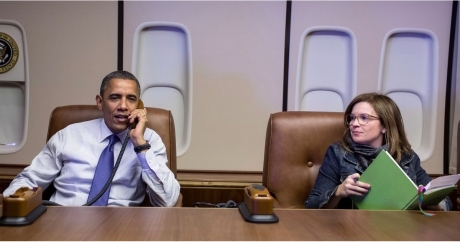 In 2013, ForeignPolicy.com wrote an article about how to nab a top staff job in Obama’s White House. Its three tips included 1) be a rich donor, 2) Be a cabinet secretary’s protégé, or 3) work your butt off—Alyssa Mastromonaco opted for number 3. Alyssa’s new book Who Thought This Was a Good Idea: And Other Questions You Should Have to Answer When You Work in the White House, is a memoir of her hilarious and difficult adventures working as Deputy Chief of Staff for Operations for President Obama.
In 2013, ForeignPolicy.com wrote an article about how to nab a top staff job in Obama’s White House. Its three tips included 1) be a rich donor, 2) Be a cabinet secretary’s protégé, or 3) work your butt off—Alyssa Mastromonaco opted for number 3. Alyssa’s new book Who Thought This Was a Good Idea: And Other Questions You Should Have to Answer When You Work in the White House, is a memoir of her hilarious and difficult adventures working as Deputy Chief of Staff for Operations for President Obama.
“The cover isn’t the best picture of me, but it is a great picture.”
“Having worked for Michelle Obama, I’m a big fan of movement, even if it’s just to the fridge.”
“If you’re working 22 hours a day you want flexibility on how and when you travel.”
“This book was a soul searching event. I was worried I wasn’t interesting enough.”
“I did a full hour with Charlie Rose and people approached me about making politics accessible.”
“I got a co-writer who was a Millennial who helped me focus on successful traits and risk taking and kindness.”
“The feedback I’ve gotten is that public service is a great thing.”
“I tried to write stories that were only my stories where I was the witness.”
“There’s nothing in the book that’s even remotely classified.”
“I haven’t gotten feedback from Obama when he finished the book. But he said ‘Quite good, funny’ about the first 2 chapters.”
“I was a French major with a minor in Japanese. I thought politics would be fun. I enjoyed being a public servant.”
“I changed my major to PoliSci and had an internship with Bernie Sanders.”
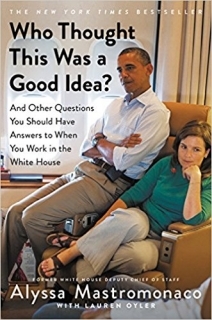
“I wrote John Kerry’s office a sweet letter about why I needed to be there and they bought it! I was hired!”
“I had to babysit to pay my bills and was never happier!!”
“The hardest part was really telling the stories that were just mine to tell.”
“The West Wing didn’t have a tampon dispenser. When I became Deputy Chief of Staff I realized the need to ask question why?
“I really only worked for people who I thought were profoundly good people and I supported 100%.”
“The reason I ended up in the White House because I believed in the people I worked for.”
“Get behind someone you can get behind every day and believe in.”
“We had a bit of sisterhood. We had a moment of self awareness to learn from each other.”
“In DC, the best kind of plans are canceled plans.”
“There are hard parts about being a woman in Washington but the hardest part was not psyching myself out.”
“My struggle was rising to the occasion and not assuming anything of what anyone thought.”
“My first visit to the White House in 2008 for the transition.”
“The campaign I ever worked on was ‘Stronger in the world, more secure at home.’”
“The first time I cried in front of my boss I was leaving the senate office and was afraid of the promotion.”
“There’s a difference between crying for emotion and crying for manipulation.”
“I never thought I’d be at the White House protesting but it had to happen.”
“The first two weeks of proceeds for the book I’m donating to the Women’s March.”
Stephanie Horbaczewski [hor – BUH – chess – kee] is the CEO and co-founder of StyleHaul— the largest global-style community of content creators. Currently StyleHaul has more than 6000 channels and over two billion monthly views in 85 countries. Under Stephanie’s leadership, StyleHaul has partnered with marquee global brands like L’Oreal and Maybelline and spearheaded global industry trends. The success of StyleHaul has also resulted in a successful acquisition in 2014 by RTL Group with a deal valued at $153M and more than $200M with earn outs.
“I always knew I wanted to be an entrepreneur.”
“I read an article about what Ashton Kutcher was doing in short form content and had an aha moment.”
“Things were happening really fast and then things were exploding.”
“We have video creators—20% of women make video has gone up with Instagram and 80% are watching it.”
“The other social platforms are part of social storytelling.”
“We have 10,000 creators who make things beyond the YouTube platform.”
“People were willing to behave inappropriately toward women that they wouldn’t toward men.”
“Raising money wasn’t so much difficult as it was time consuming.”
“Oversaturation is the biggest problem in video content. How do people have the time to consume as much content as they do?”
“I was called the ‘friend’ in terms of leadership styles. I like to be in the dirt with everyone rather than an ivory tower.”
“We don’t tolerate bullying. We’ve thrown people out of the network for saying mean things.”
“The employees wanted to have a committee that made StyleHaul a better place to work.”
“We have a lot of autonomy and freedom within our walls.”
“When I asked the company if they wanted a 401k and every hand went up. It’s important to be part of an organization that has that infrastructure.”
“I didn’t want to sell, I wanted to keep making money to do more.”
“The marketplace drove an enormous part of my decision to be acquired.”
“StyleHaul is my baby. We even have the same initials.”
“My mother was supportive of my fashion sense as a young kid. I was almost costuming.”
“I was told that I needed to have a sales job to pass my class.”
“There’s so much of a business behind the prettiness of fashion.”
“The first Creator I brought onto StyleHaul was from Chicago. She was young. Her youth helped. She wasn’t jaded.”
Catch up with ‘Dot Complicated with Randi Zuckerberg’ every Wednesday at 12 pm ET on SiriusXM Business Channel 111

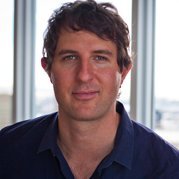
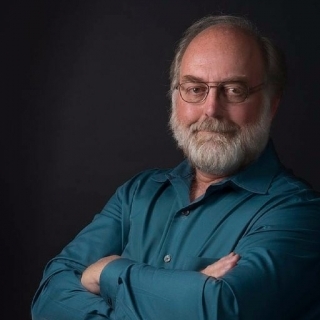 THOMAS FREY
THOMAS FREY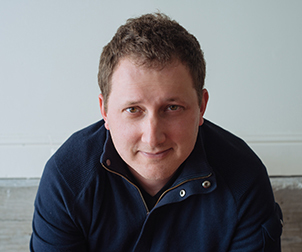 DAVID ROGIER
DAVID ROGIER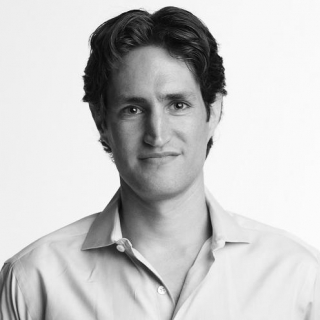 ADAM ALTER
ADAM ALTER
 LAUREN WASHINGTON
LAUREN WASHINGTON FAITH POPCORN
FAITH POPCORN
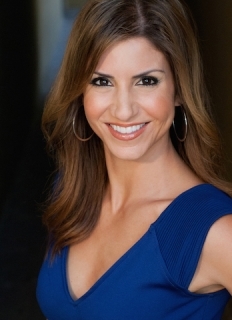
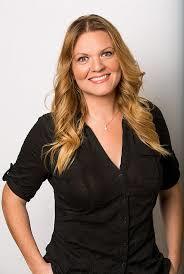
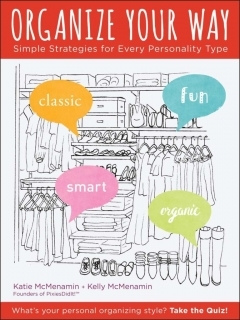 PIXIES DID IT
PIXIES DID IT
